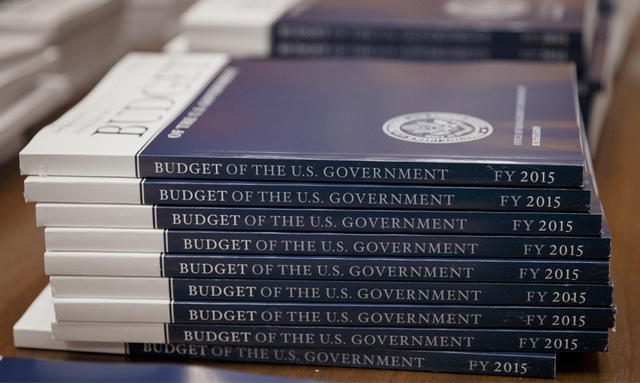
The Department of Veterans Affairs is asking Congress to approve a $163.9 billion budget in fiscal 2015, an increase of about $10.1 billion over the department’s fiscal 2014 funding.
The Department of Veterans Affairs is asking Congress to approve a $163.9 billion budget in fiscal 2015, an increase of about $10.1 billion over the department’s fiscal 2014 funding.
The 2015 budget would provide $68.4 billion in discretionary funding, which includes $56 billion for VA medical care, about $1.6 billion to help end veterans’ homelessness, and $1 billion to create the Veterans Job Corps. The budget also includes $95.6 billion for VA’s mandatory programs, including disability compensation and pensions for veterans.
The funding would provide health care for 9.3 million enrolled veterans, 6.7 million patients, and about 97 million outpatient visits. It would also provide disability compensation for 1.5 million veterans or survivors, and vocational/educational benefits for another 1.2 million veterans.
In VA’s ongoing war against its disability claims backlog, $138.7 million would be allocated for the Veterans Claims Intake Program, which would continue to implement the paperless claims system and improve veterans’ access to benefits information.
Looking ahead to fiscal 2016, the budget is proposing $58.7 billion in advance appropriations for VA medical care programs.
More than $7 billion in the budget would be used to expand and improve mental-health services for veterans, including treatment for post-traumatic stress disorder (PTSD) and military sexual trauma. The funding would allow VA to continue its collaborative work on mental health with the Department of Defense and the Department of Health and Human Services.
Finding effective treatments for PTSD and traumatic brain injury (TBI) are a primary concern of The American Legion. It conducted a month-long survey in February for veterans suffering from one or both of these conditions. Results of this survey will be announced and discussed at a TBI/PTSD symposium the Legion is tentatively planning for the spring.
The $1.6 billion budgeted to help homeless veterans would include $500 million for the Supportive Services for Veteran Families program, and $321 million for the Department of Housing and Urban Development-VA Supportive Housing program. This investment is intended to help achieve VA Secretary Eric Shinseki’s goal of eliminating homelessness among veterans by the end of 2015.
- Dispatch

